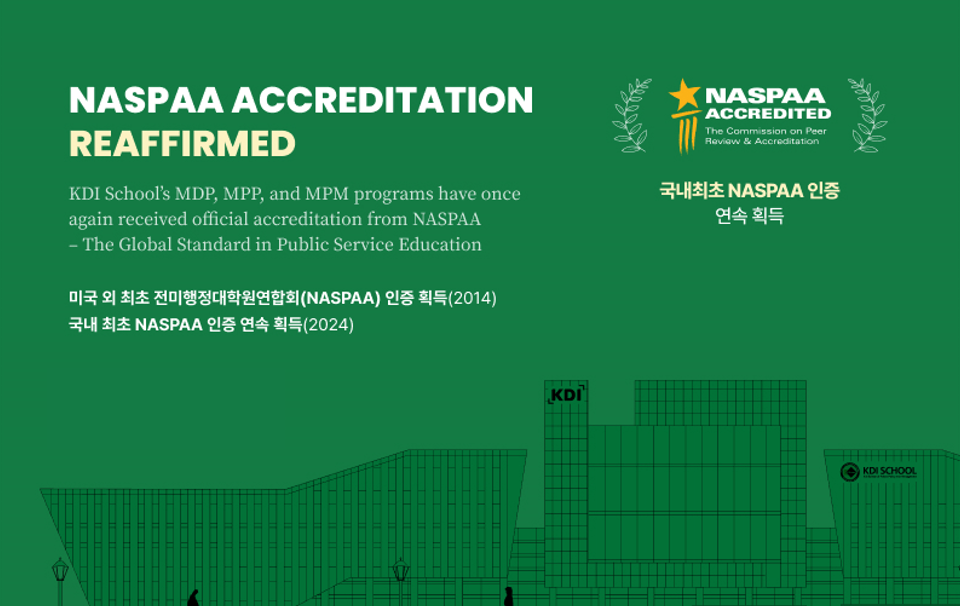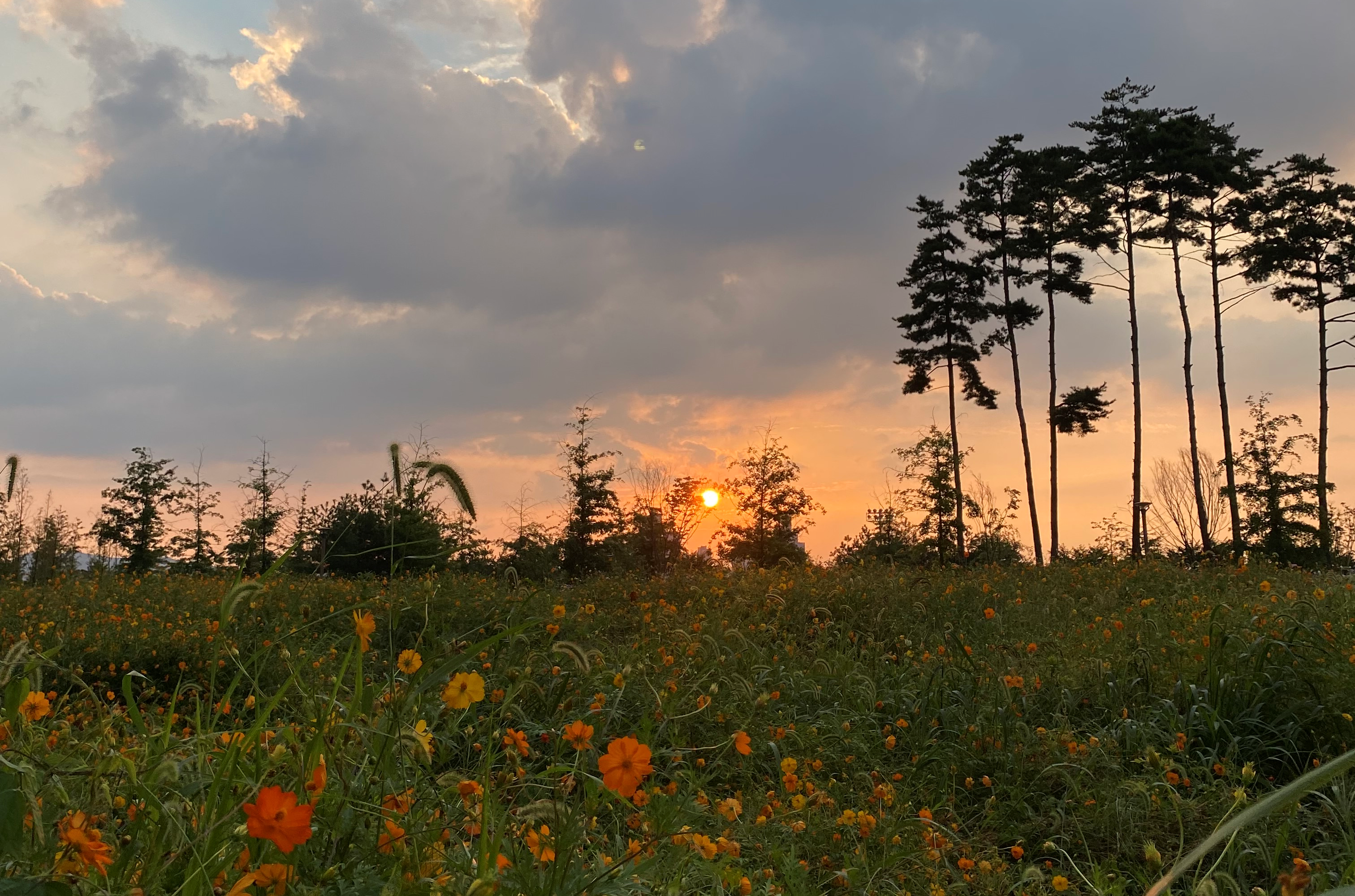
Sustainable Collaborations with Korea as an Alumnus of KDI School
- Date 2019-09-05 02:37
- CategoryStory
- Hit2417
2019 Int’l Alumni Essay Contest 2nd Prize Essay
Sustainable Collaborations with Korea as an Alumnus of KDI School
SAN, Nyo Nyo (2014 MPP, Myanmar)
 I am inspired to participate this alumni essay contest as I am sure that I have made lots of contributions to my organization and to my country by the several collaborations with Government Korea to improve my organization’s structural and staff’s skill development. One of my most unforgettable and lifetime memory is the student life at KDI School where I got invaluable knowledge and experiences not only on subject matter theories and practical issues addressing but also on time management against lots of lectures and exercises I had to accomplish in time. Being an alumnus of KDI School, I have promised myself that I have to serve my organization and my country with knowledge and skill I gained from the school since ever I have finish my course and Supervised Research Project(SRP), and before come back to Myanmar.
I am inspired to participate this alumni essay contest as I am sure that I have made lots of contributions to my organization and to my country by the several collaborations with Government Korea to improve my organization’s structural and staff’s skill development. One of my most unforgettable and lifetime memory is the student life at KDI School where I got invaluable knowledge and experiences not only on subject matter theories and practical issues addressing but also on time management against lots of lectures and exercises I had to accomplish in time. Being an alumnus of KDI School, I have promised myself that I have to serve my organization and my country with knowledge and skill I gained from the school since ever I have finish my course and Supervised Research Project(SRP), and before come back to Myanmar.
Since I have got back to my country I was transferred to Head office and assigned at Research and Development Section as Staff officer until I was promoted as Assistant Director, and Head of the section at Central Statistical Organization under Ministry of Planning and Finance in 2016. Since then I had to deal with many international organizations and Development Partners (DPs) to seek and implement development projects for the organization. Since Myanmar is one of LDCs and government budget is very limited according to low level of revenue, many governmental departments and organizations is facing budget constraints for staff capacity building and organizational development.

At the same time, demand for data and statistics is increasing ever due to adoption of United Nations Sustainable Development Goals (SDGs) at the end of 2016. SDGs came into effect on 1st January 2016 with 232 indicators to monitor and evaluate their achievement. Here, the role of NSOs around the world facing budget shortage and resource constraints especially in capacity needs for producing required indicator regularly and to use them in SDGs Monitoring and Evaluation process. As Myanmar Central Statistical Organization (CSO) is only the one national statistical Coordinating Agency, it is a must duty to take the role of National SDGs Coordinator.
Since I was assigned as Head of R&D Section, I had to take part SDGs Data Assessment Process that evaluated the data readiness in Myanmar for over 200 SDGs indicators. The process started from early 2016 and end in May with a successful report launching: “Readiness of Myanmar’s Official Statistics for the Sustainable Development Goals” with the technical assistance of UNDP. After assessment of data availability in Myanmar, I was again assigned to accomplish second SDG related report which consists of baseline value for M&E Purpose.
With a hard work of collaboration with UNDP, my team and I finally finished up the report: “Measuring Myanmar’s Starting Point for the Sustainable Development Goals in February 2017. When SDGs was localized with Myanmar Sustainable Development Plan-MSDP which is approved in August 2018, CSO was assigned to develop National Indicator Framework-NIF for MSDP. Since then my team under guidance by Director General of CSO, we has been trying to identify indicators which reflect not only MSDP but also SDGs. Currently, we tentatively listed 284 indicators of which 40% are SDG indicators. All of those assigned work and my section’s TOR demand for extra assistance and additional funding to be able to produce new data and statistics for the country. However, against with increasing workload and data demand, government budget is always limited while the priority goes to other important and urgent issues matters such as health, education and social welfare.

Keeping in mind the need of resource outsourcing, CSO started to find technical and financial assistance from international agencies. Since that time, find resources from outside is one of the major tasks for my section and I need to prepare several proposals and request letters to seek alternative funding. In doing so, luckily we got a huge grant project funded by Government of Korea through Mekong-ROK Cooperation Fund. The project is called “Capacity Building Project on Development of Statistics”. Now I am taking in charge of that project as a Project Manager since the project came into implementation in 2017. Now the project is near the end and I could successfully organize several events under the project.
I organized two study visits under the project not only for CSO staff but also for other staffs from line ministries to gain shared knowledge of other NSOs’ institutional arrangement and operational practices. The total amount of project funding is only 399,680 USD but its impact is not numerable for CSO and Myanmar. We could train about (300) staff with Special Training for Capacity Building, Two Fresher Training for newly appointed deputy statisticians, Basic Computer Course, Training on Statistical Methods and Analysis , Training on Macro Economic and Development Economics , Training on Introduction to Research Methods and English 4 Skills Trainings.
Apart from trainings, I organized awareness raising workshops with the title of “Monitoring and Evaluation of SDGs Implementation in Myanmar” throughout the country as public awareness is very important for successful implementation of SDG which encompass with 19 goals and 196 targets. Only multi-stakeholder participation can bring the best results for accomplishment of SDG goals not only in Myanmar but also in every country. Therefore, we organized 5 workshops and still two more remain for later this July 2019. Giving awareness and educating people would bring high efficiency on taking ownership of the people for implementation of the goals as well as notification of the need of data and statistics which reflect current situation of the country and the later work of producing data and statistics in a regular basis for M&E. I really appreciated the generous contribution of Korean Government for granting this project to CSO to improve our staff capacity as well the capacity of other line ministries’ staff.

Apart from financial assistance of Korean Government, CSO was able to enjoy technical assistance under 2016-2017 Knowledge Sharing Program for improvement of survey methodology in Myanmar. The research was led by President, Gyung Tae KIM from Korea Statistics Promotion Institute while I was serving as a local consultant for finding required documents and data and then translation of those as per necessary for the project. Being a country practicing decentralized statistical system, all government departments and organizations are producing their sectoral data and statistics for their own use. Therefore, the need of standardized survey techniques and methodology are being essential to Myanmar to be able to use them as internationally comparable data and statistics. The research project helped me a lot with insightful study on how Korea overcome challenges regarding survey methodology improvement and data standardization and harmonization.
Currently, CSO is collaborating with UNFPA for Survey Data Harmonization. The work will oversee and address problems and issues from using different data collection methods and definitions when major census and surveys are carried out in Myanmar. The variation of definitions across ministries and departments creates difficulty for CSO while compiling data, statistics and indicators in reporting to regional and international statistical organizations. Now CSO is paying high attention for data harmonization and setting standardized criteria as per the results of KSP research project.
On top of that, visiting again to Korea from 6th to 10th February 2017 was another unforgettable moment in my life since I could have a chance to meet again with my KDI family including some junior students. We had very fruitful discussions during the workshop and the workshop was remarked as very active and vibrant one with lots of questions and interactive discussion among the participants. In these contents, I am assured that our KDI family is always in our mind and heart though we are living away in different places because we create sharing society while believing that “Sharing is Caring”. This is also aligned with all-inclusiveness which is the SDGs concept of “No One Left Behind”.

Given those and many other reasons, I am proud and will be proud forever to be an alumnus of KDI school since I believe that my performance and contributions was significantly improved after studying at KDI School. I was promoted and assigned as Head of R&D Section after graduation and I could continue with bilateral cooperation with Korea by handling large financial project as well other technical cooperation under KSP Program. I really hope and believe that I can contribute my organization and my country with better and greater skills as an alumnus of KDI School in my remaining career life.

Related News
No Contents.


